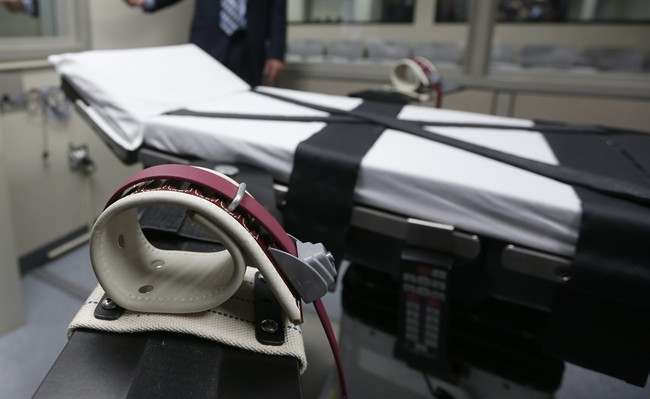OKLAHOMA CITY – Oklahoma’s attorney general is seeking to delay three upcoming executions, including two set for next month, saying the state needs more time to obtain drugs and train staff on new lethal injection protocols put in place after an execution went awry in April.

Attorney General Scott Pruitt filed a notice late Friday seeking to delay the executions of three men until 2015. One of the men, Charles Warner had been originally scheduled to die on April 29 – the same night that inmate Clayton Lockett writhed and moaned on the gurney, prompting the state to put all executions on hold until a review was conducted.
READ MORE: Oklahoma report: More training for executioners needed after flawed IV line placement
Warner’s new execution date is Nov. 13, but Pruitt said in the court filing that Oklahoma does not have the necessary drugs or commitments from medical personnel to carry out the execution.
“The state does not want to rush implementation of this new training program, especially so soon after revision of the execution protocol,” Pruitt wrote. “The additional requested time for all three executions will allow (the Oklahoma Department of Corrections) sufficient time in which to obtain the necessary drugs and medical personnel and to fully and thoroughly train each member of the new execution team.”
Gov. Mary Fallin and Oklahoma Department of Corrections Director Robert Patton each released statements Monday saying the additional time will help to better train the execution team.
Pruitt asked that Warner’s execution be reset for no earlier than Jan. 15, with Glossip’s and Grant’s executions to follow.
The three are among 21 death row inmates who have sued the state seeking to block their executions, arguing that by tinkering with the lethal injection chemicals, the state is experimenting on death row inmates and violating the U.S. Constitution’s ban on cruel and unusual punishment.
An attorney for Warner, Dale Baich, said the delay will allow more time to determine if Oklahoma’s lethal injection system, including its new protocols, is constitutional.
“The discovery process in the pending federal litigation is underway and time will be needed for court review,” Baich said in a statement.
A review from the Oklahoma Department of Public Safety blamed an improperly placed intravenous line, and not the combination of lethal drugs, for the troubles in Lockett’s execution. The investigation recommended more training for the execution team and more detailed contingency plans, including a backup set of drugs.
Prison officials last week unveiled a newly renovated execution chamber inside the Oklahoma State Penitentiary that includes more space for the executioners to operate, new audio and video equipment, and an ultrasound machine to help locate veins.
Warner was convicted in the 1997 rape and murder of 11-month-old Adrianna Walker, his roommate’s daughter.
READ MORE: U.S. inmate was injected 15 times during nearly 2-hour execution



Comments